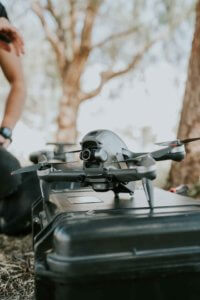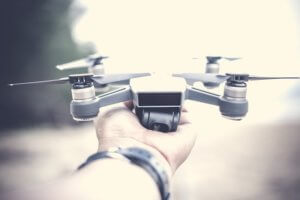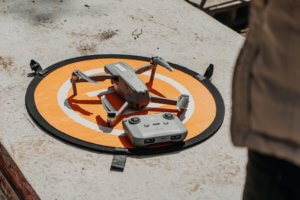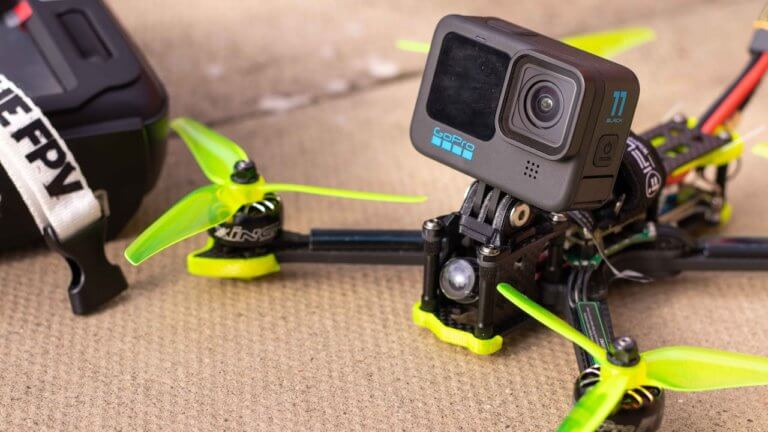Is a Drone Worth Buying?
In recent years, drones have become a popular gadget among tech enthusiasts and professionals alike. As the technology advances, drones are being used for a wide range of applications, from aerial photography and videography to racing and even deliveries. The question that many potential buyers ask themselves is, “Is a drone worth buying?” In this article, we will explore the various factors you should consider before making a decision. We’ll also discuss the benefits and drawbacks of owning a drone and provide some recommendations for the best drones on the market.

Why Should You Consider Buying a Drone?
There are several reasons why people choose to buy drones. Some of the most common ones include:
- Aerial photography and videography: Drones equipped with high-quality cameras allow you to capture stunning images and videos from unique perspectives that would be impossible to achieve with a traditional camera.
- Racing: Drone racing has become a popular sport, with many enthusiasts building and customizing their drones for speed and agility.
- Exploration: Drones can be used for exploring hard-to-reach areas, such as mountain ranges, dense forests, or even the insides of large structures like caves.
- Surveying and mapping: Drones are increasingly being used for surveying land, inspecting infrastructure, and creating detailed maps.
- Deliveries: Some companies are experimenting with drone deliveries, which could become more common in the future.
 Benefits of Owning a Drone
Benefits of Owning a Drone
There are several benefits to owning a drone, including:
- Unique perspectives: Drones enable you to capture stunning images and videos from angles and perspectives that were previously inaccessible.
- Increased creativity: Drone photography and videography open up a whole new world of creative possibilities, allowing you to experiment with different shots and compositions.
- Cost-effective aerial photography: Hiring a helicopter or plane for aerial photography can be expensive. Drones offer a much more affordable alternative.
- Enhanced productivity: Drones can significantly improve efficiency in industries such as agriculture, construction, and surveying by streamlining various tasks.
- Fun and exciting hobby: Flying a drone can be an exhilarating experience, making it a great recreational activity for both kids and adults.
Drawbacks of Owning a Drone
Despite the many advantages, there are some downsides to owning a drone:
- Initial cost: Drones can be expensive, especially if you want one with advanced features and a high-quality camera. However, there are more affordable options available for those on a tight budget.
- Maintenance and repair costs: Drones have many moving parts and can be prone to damage, particularly if you’re inexperienced. Repair costs can add up, so it’s essential to handle your drone with care.
- Legal restrictions: Drone usage is regulated by various laws and regulations. Depending on where you live, you may need to register your drone, adhere to specific flight rules, or even obtain a license.
- Privacy concerns: The use of drones can raise privacy issues, as they can easily capture images and videos of people and property without consent. It’s essential to respect others’ privacy when flying your drone.
- Learning curve: Flying a drone can be challenging, especially for beginners. It takes time and practice to master the controls and avoid accidents.
- Limited flight time: Most consumer drones have a flight time of around 20-30 minutes, which can be limiting if you’re trying to capture a lot of footage. Extra batteries can help, but they also add to the overall cost.
 Factors to Consider Before Buying a Drone
Factors to Consider Before Buying a Drone
Before you decide whether a drone is worth buying, consider the following factors:
- Purpose: Identify the main reason you want a drone. This will help you narrow down your options and choose a model that best suits your needs.
- Budget: Determine how much you’re willing to spend. Drones come in various price ranges, so you’re likely to find one that fits your budget. Remember to factor in the cost of additional accessories, such as extra batteries and a carrying case.
- Features: Consider the features you need in a drone, such as camera quality, GPS, obstacle avoidance, and flight range. These features will impact the drone’s price and performance.
- Ease of use: If you’re a beginner, opt for a drone with user-friendly controls and features, such as automatic takeoff and landing, as well as built-in tutorials.
- Regulations: Familiarize yourself with the drone regulations in your area to ensure you can legally operate the drone you choose
- After-sales support: Look for a drone from a reputable manufacturer with good customer support. This will ensure that you have access to help and resources in case you encounter any issues with your drone.
- Portability: If you plan to travel with your drone or use it in remote locations, consider its size and weight. Smaller, foldable drones are easier to transport and store.
 Recommended Drones
Recommended Drones
Based on the factors mentioned above, here are some drone recommendations for different budgets and purposes:
- DJI Mini 3: A compact and lightweight drone that’s perfect for beginners and travelers. It offers a 4K camera, vertical and horizontal video, 38min battery life
- DJI Air 2S: A mid-range drone with a 5.4K camera, obstacle avoidance, and a 12km range. This drone is suitable for aerial photography enthusiasts and professionals alike.
- Autel Robotics EVO Lite: A versatile drone with a 4K camera, 40-minute flight time, and a range of advanced features, such as obstacle avoidance and GPS tracking. It’s an excellent option for those who want a reliable, feature-rich drone without breaking the bank.
- DJI FPV: A first-person view (FPV) drone designed for racing and immersive flight experiences. For more information on FPV cameras, check out our article: [What is an FPV Camera: A Complete
- Parrot Anafi USA: A professional-grade drone with a 4K camera, 32x zoom, and advanced thermal imaging capabilities. It’s an excellent choice for commercial applications, such as search and rescue, inspection, and surveying.
Final Thoughts
So, is a drone worth buying? The answer depends on your needs, interests, and budget. Drones offer numerous benefits, from capturing breathtaking aerial footage to providing an exciting and engaging hobby. However, they also come with some drawbacks, such as legal restrictions and maintenance costs.
Before making a decision, carefully consider the factors discussed in this article, and research the various drones available on the market. With the right drone, you can unlock a world of creative possibilities and enjoy a unique and rewarding experience.
Remember to fly responsibly, adhere to local regulations, and respect the privacy of others. Happy flying!






